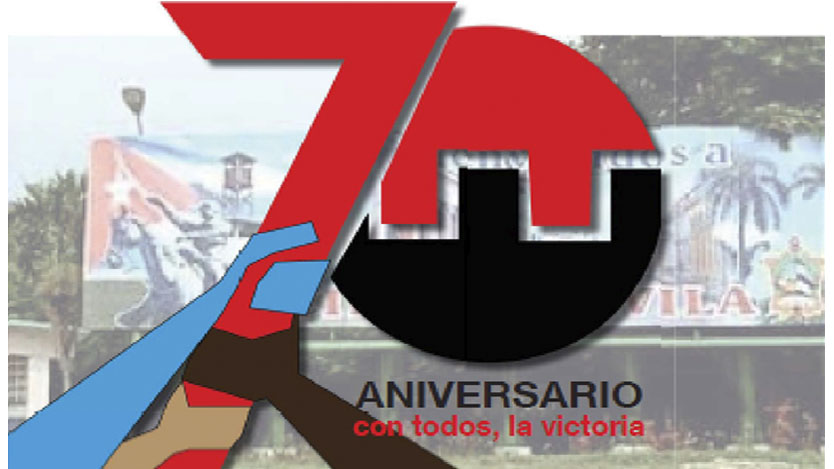
Taking history by storm on July 26 would always have to be an act of poetic lineage because, some time later, that date would have to be remembered for its significance, rather than for the fact itself. For the commotion that it aroused in the Cubans of 1953 and for the clarion call that it meant —and means— for those of 2023.
Seventy years of remembrance and teaching, as if from that very day it was known that the barracks would end up being schools and the message would be learned in each generation, by the hands of the protagonists, from what they did then and said later; from what the textbooks and essays narrated that tried to explain, without success, how a small group of rebels entered a barracks armed to the teeth believing, not only that they would live to tell the story, but that they would live and triumph.
How can we venerate them in due measure if, at times, they seem to us to be kamikazes or too inexperienced in military art to, once the surprise factor is aborted, continue to be beaten some 2,000 kilometers from the presidential chair they intended to overthrow?
Who were those "crazy" men and women who fought like this, and how did a frustrated attack end up being celebrated with cheers and a National Day was instituted by decree, in case slippery memory forgot those who would be free or martyrs? What radicalized them in such a way, if other contemporaries continued to live in "submerged opprobrium" and did not rise up on the plain or in the Sierra?
History, always in a spiral, leads us to these answers every July, while the rest of time allows us to appraise, in due measure, the events. It allows us to understand that July 26 was more of a premeditated and inevitable act than a hasty battle to overthrow the dictatorship that had previously staged a coup and had made them understand, perhaps, that just with a similar coup they could take the can.
The "objective and subjective factors" did not show the rebels another path, although the allegation of their leader would clear up all the last doubts: that had not been an essentially warmongering act. On July 26, the independence struggle continued, protected by our mastermind and urged to achieve "with all and for the good of all."
That is why Fidel's self-defense would be, at the same time, the program of the Revolution. His denunciation of the six fundamental problems that afflicted the people and other reforms that he considered necessary would acquit him before History, even when the judges found the undisputed leader of a movement whose rebellion we celebrate every July guilty.
For this reason, the best tribute would also be to continue claiming a prosperous Cuba, challenging the old and the new problems through a program that no longer has to be preceded by attacks or conspiracies, because other dead were already martyrs. And here we are, owing them our survival.
Seventy years later we are still in debt, rebelling against what oppresses us; historical proof that the rebellion of before is still cultivated in the now.
